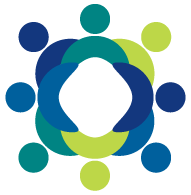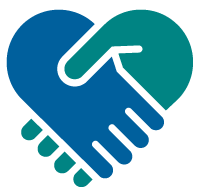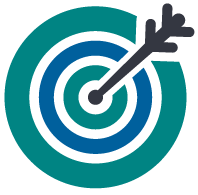There have been many strategies introduced to generate progress towards our four stated goals. These have been led by UCAR OACO enacted by various offices, and championed by many individuals across the organization. The strategies listed below are the major changes put in place but are not the full accounting. For more information, please see the “Measuring Our Progress” page.
Goal 1
- Over the past several years we have focused on developing hiring procedures that make our processes fairer for all our applicants. Some of these procedures include:
- Providing links to resources for writing good resumes and cover letters on our careers site;
- Requiring that hiring committees are recruited early and have input into the job ad before it is posted
- Developing rating rubrics before posting the position to improve fairness during the initial screening process as well as during the interview stage
- Using skill-based rather than personality-based language in job descriptions
- Greater communication with applicants throughout the process, including the timeline and what to expect at each point in the process;
- Using questionnaires during the application process to explicitly ask candidates how they meet the job requirements, rather than relying on resumes and cover letters to screen applicants; one of these questions is required to be about relational skills;
- Requiring a statement from candidates to leadership positions describing how they create welcoming and psychologically safe environments for their staff;
- Providing the interview questions to candidates an hour before the interview to support those who struggle with information processing
- Following up with every candidate to let them know the outcome of their process.
- In 2019, UCAR introduced a core competency in all staff performance evaluations, assessing their contributions towards “creating an ethical, welcoming, and supportive environment” for all. Merit increases and promotions are impacted by all core competencies.
- UCAR introduced a flexible working environment for employees during the pandemic and has continued this going forward. Employees may work in person, hybrid, and in occasional cases remotely from anywhere in the US except US territories. Employees have the option to work internationally or from anywhere in the US for up to 20 days a year if their job duties allow. Employees have the option to work their preferred scheduled hours if this does not negatively impact team productivity.
- In response to research that found biases in reference letters for promotions, UCAR adapted our letter request procedure to improve fairness for candidates. These included being more intentional in who was asked for letters of reference, and asking explicit questions instead of just asking for a general letter.
- One of UCAR’s Next Generation Fellows developed and adopted UCAR guidelines for accessibility and welcoming environments at conferences and meetings based on good practices from the literature.
- A mentoring program is open to all employees at any stage of employment.
- All new employees go through a comprehensive onboarding process, and are offered a buddy system for their first six months of employment.
- UCAR, NSF NCAR, and UCP together run a number of internship programs that have effectively worked to broaden participation in the Earth System Sciences. The NSF SOARS program, in particular, has been running since 1996 and has helped to support over 250 students from myriad backgrounds in bridging from undergraduate to graduate work and through their careers.
![]()
Goal 2
- Every four years, UCAR conducts a Workplace Culture Survey that assesses the existing workplace culture and provides recommendations for how to tackle concerns that arise from the participants.
- Each Lab, Program, and Office has their own Culture Committee that tackles local issues, while NCAR CORE Office, UCP ACO and OACO handle the organization-wide concerns in collaboration with other offices such as HR and our Office of General Counsel.
- We champion continuing education by offering trainings through our supervisor and leadership training ecosystem, and to all employees in standalone offerings such as Bystander Intervention, Feedback Labs, and Navigating Change. Our homegrown flagship workplace culture education program, UNEION, has increased awareness, understanding, and ability to work with colleagues from different backgrounds across our workforce.
- Employee Resource Groups enhance the institutional and peer support for our employees of many different backgrounds, and collaborate with our office and beyond to recommend systemic change that supports all our staff. ERGs are open to everyone, regardless of identity.
- Our Participant and Contributor Codes of Conduct go beyond our own staff to provide guidance to all visitors and individuals collaborating with our staff on expectations of appropriate conduct when working with us.
- We established a new anonymous reporting platform, EthicsPoint, for any member of staff, visitor, or collaborator to report concerns about ethics, harassment, or other misconduct.
- Our reward systems were revamped and expanded to ensure that all team members, including admin staff, students, and other support staff are included in the recognition.
- OACO provides comprehensive advice to our scientists working to draft field safety plans for their proposals.
Goal 3
- UCAR partners with our Indigenous colleagues across the country as part of the Rising Voices Center for Indigenous and Earth Sciences. Rising Voices facilitates opportunities for Indigenous and non-Indigenous scientific experts and community leaders from around the world to jointly address how extreme weather events and multi-decadal ecosystem changes are impacting communities and to develop action plans. Rising Voices aspires to advance science through the collaborations of Indigenous and Earth (atmospheric, social, biological, ecological) sciences, in a convergent science approach to addressing and understanding extreme weather events.
- NSF NCAR’s CORE Office leads a Minority Serving Institution (MSI) engagement program that seeks to co-develop research and educational opportunities between MSIs and other educational and research institutions across the country.
- UCAR’s OACO has provided workplace culture training support for outside entities in the field of geoscience, as partners on proposals submitted to various funding agencies.
- We partner with local and national workplace culture experts in a community of practice and support, including regular meetings, swapping training opportunities, and offering recommendations and good practices to each other.
Goal 4
- All of our programs and initiatives are evaluated as a matter of course. The evaluations are used to adjust the programs and make decisions about where and how to deploy our resources. We have published some evaluations in the peer-reviewed literature.
- We collect details of our demographics, and have the ability to cut and sort by job group, department, and a number of other attributes.
- We routinely publish the results of our Workplace Culture Surveys, which take place every 4 years.
- We have developed an internal database of workplace-culture-related resources and peer-reviewed literature to help our staff ground their plans in the literature and good practices when creating fair and supportive environments for their colleagues.
- Our offices hold quarterly Ask Me Anything sessions with our employees, with anonymous questions, to allow open and honest conversation about workplace culture, and support accountability and transparency.
- Our offices continue to participate in activities and advisory committees at professional societies and meetings, and share good practices with colleagues investing in this work.
